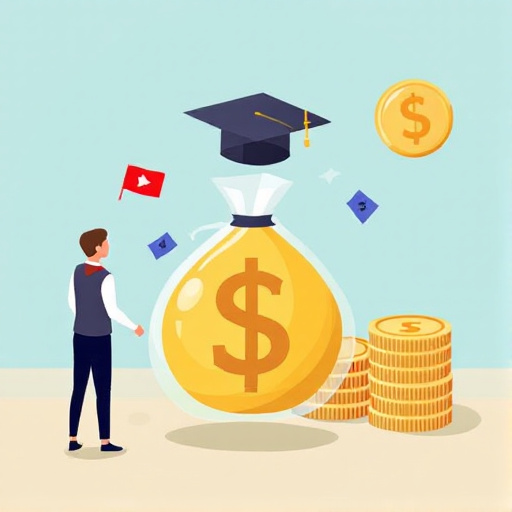Featured Articles
- Beyond Credit Scores: The Surprising Impact of Social Media on Debt Management Strategies
- Debt Dieting: How Minimalism and Financial Freedom Can Transform Your Relationship with Money
- Harnessing the Power of Behavioral Economics: Bizarre Psychological Tricks for Effective Debt Management
- Navigating the Dark Side of Debt: How Digital Currency Could Revolutionize Loan Repayment Strategies
- Navigating the Debt Dilemma: Unconventional Strategies for Student Loans and Mental Health Recovery
The Rise of "Debt Fatigue": How Emotional Burnout is Shaping Financial Decisions in 2023
The Rise of "Debt Fatigue": How Emotional Burnout is Shaping Financial Decisions in 2023
As millions grapple with escalating costs of living and the aftermath of global economic disruptions, a new phenomenon called "debt fatigue" has emerged in 2023, profoundly influencing financial decision-making. This article delves into how emotional burnout from debt affects individuals’ attitudes toward spending, saving, and financial management.
The Emotional Toll of Debt: Understanding "Debt Fatigue"
Imagine waking up every day feeling as though you’re swimming in an ocean of bills, loans, and financial responsibilities—overwhelmed and exhausted. It’s no wonder that “debt fatigue” has become the charge of the consumer battlefield in 2023, a term that encapsulates the emotional exhaustion stemming from persistent financial pressure.
According to a report by the Federal Reserve, nearly 70% of Americans have experienced some form of debt-related stress over the past year, contributing to feelings of anxiety, helplessness, and depression. This statistic underscores the massive impact of financial burdens on mental health, marking what many have termed a “crisis of consciousness” regarding personal finance.
User-Friendly Solutions in a Complex World
So, what's a person to do when debts keep piling up, but there's no sign of relief? Here’s where user-friendly financial solutions come into the picture. Mobile banking apps, budgeting software, and digital financial advisors are making strides in helping consumers take control without any pre-existing knowledge about finance, which was often a barrier in the past.
Take Sarah, a 32-year-old graphic designer. Struggling with student loans and credit card debt, she found that utilizing a popular budgeting app helped her visualize her expenses, leading to a sense of accomplishment. The instant feedback from the app kept her motivated, turning a daunting task into a manageable daily routine.
The Gravitational Pull of Instant Gratification
In a world driven by technology and convenience, it’s easy to fall into the trap of instant gratification. Buying that latest trendy gadget or ordering food from the newest restaurant gives an immediate rush, a distractive balm for the heaviness of debt fatigue. According to research from the American Psychological Association, 61% of people admit to making impulsive purchases as a coping mechanism for stress, highlighting how emotional factors significantly influence spending behavior.
Interestingly, a study conducted by the University of Southern California found that individuals experiencing high levels of financial stress are more likely to spend on “retail therapy” as a temporary escape from their problems. In simpler terms, the more overwhelmed about money you feel, the more likely you are to spend it impulsively.
"The Paycheck-to-Paycheck Mentality"
In 2023, a staggering 64% of Americans reported living paycheck-to-paycheck. This financial strain fosters a mentality that necessitates immediate monetary relief, however fleeting it may be. As individuals find themselves perpetually in survival mode, planning for long-term financial health becomes a near-impossible task, creating a vicious cycle of financial despair.
The Role of Social Media in Financial Decisions
Social media has become a double-edged sword when it comes to personal finance. On one hand, influencers are advocating for saving, budgeting, and smart investment. On the other hand, the constant barrage of “living your best life” posts can exacerbate feelings of inadequacy and fuel debt fatigue.
Consider the TikTok phenomenon hashtag #DebtFreeJourney, where users chronicle their path to financial freedom. Although inspiring, it can also lead to unrealistic expectations and pressure to achieve an idyllic financial situation while still grappling with debts. The phenomenon has shown us that while community support often motivates, it can also magnify the stress of one's personal financial circumstances.
A Lighthearted Look at Debt Fatigue
Frankly speaking, if debt were a person, it would be that one friend who never leaves your couch—even though you told them to go home three hours ago. They eat all your snacks and keep reminding you how much they need to borrow. Yet it’s hard to kick them out when they've wrapped themselves so deep into your life.
They might even try to convince you that “purchasing the avocado toast” won’t lead to the long-term debt you’ll definitely accrue later! If only they realized that financial decisions are more than just that immediate satisfaction. Sadly, debt fatigue is that friend who always finds a way to weasel back into your life—uninvited.
Reconciling Debt Management with Self-Care
While it’s crucial to confront our financial realities, recognizing the toll these pressures can take on our psychological well-being is equally important. Simple self-care rituals like exercise, meditation, or just taking moments to breathe can go a long way in alleviating stress. As per a study published in the Journal of Happiness Studies, individuals who engage in regular self-care report lower levels of financial stress.
To combat debt fatigue, consider setting realistic financial goals that also allow for small indulgences. Having a healthy balance can make you feel like you're taking charge of your finances while not completely depriving yourself of the joys of life.
Success Stories: From Debt to Financial Freedom
There are countless stories of individuals who fought through the overwhelming burden of debt to achieve financial freedom. Take the case of Jack Dawson, a 28-year-old entrepreneur who turned his finances around after facing nearly $40,000 in debt from credit cards and student loans. With diligence, budgeting, and a no-nonsense approach to spending, he was able to pay off his debts in five years.
Jack emphasizes that the turning point was acknowledging the emotional distress his debt caused, admitting, "It can be draining, but I learned that being honest with myself led to making the right choices." His story serves as a reminder that while debt fatigue can be debilitating, it’s essential to persist in seeking solutions.
Bridging the Gap: Financial Education
One of the most powerful tools against debt fatigue is financial education. Understanding the principles of budgeting, investing, and debt management can empower consumers to make informed decisions. Many high schools and colleges are beginning to include financial literacy in their curriculums to address this void, enabling future generations to have healthier relationships with money.
In fact, a study by the National Endowment for Financial Education found that people who have undergone financial education are 38% less likely to accumulate debt compared to those who haven't. This insight speaks volumes about the importance of equipping individuals with the necessary knowledge to navigate financial challenges.
Community Support and Its Importance
Building a support network can significantly ease the burden of debt fatigue. Sharing experiences with friends, family, or online communities can create a sense of camaraderie. There’s strength in vulnerability; those who bravely voice their concerns often find not only empathy but practical support and advice from others who have gone through similar struggles.
The Future of Debt Management: Looking Ahead
As we move deeper into 2023, it’s critical to adopt innovative strategies for managing debt stress while navigating economic uncertainties. Combining technology with community-driven platforms can create a more supportive ecosystem for individuals dealing with debt fatigue. Financial wellness programs in workplaces are already becoming a norm, focusing not just on corporate profits, but also on employee well-being.
Experts predict that integrating mental health resources with financial counseling will drastically change how we view financial management, emphasizing an interconnected approach that tackles emotional and financial health simultaneously.
Conclusion: Embracing Change
In summary, debt fatigue is a multifaceted challenge that extends beyond mere numbers and statements. Understanding its emotional impact and integrating supportive resources is vital for navigating today's complex financial landscape. By fostering financial literacy, community support, and balancing self-care, individuals can work toward stability and ultimately, financial freedom.
Let’s embrace change, not as an enemy but as a partner in our journey toward a thriving financial future. After all, life is about balance—banishing that debt-related guilt doesn’t mean relinquishing responsibility but rather gaining control over your own financial destiny.




